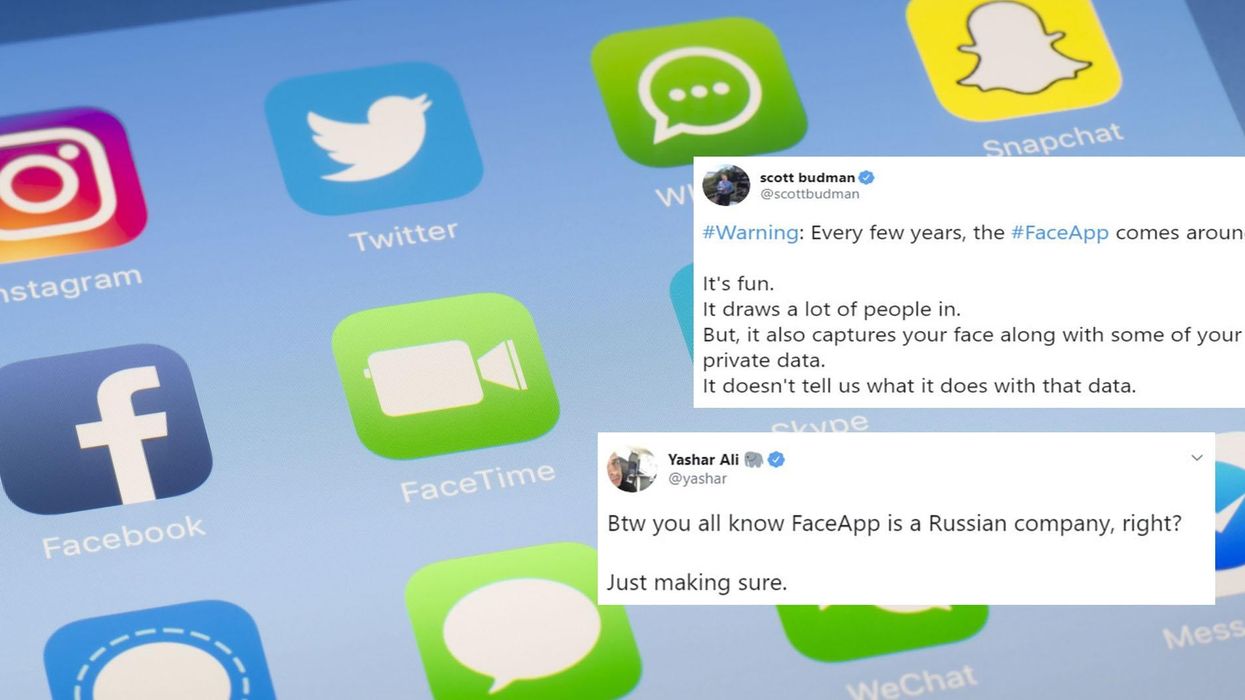Conrad Duncan
Jul 17, 2019

Picture:
Getty Images/Twitter
More than two years after it first appeared, FaceApp - an app that lets you edit your photos to appear younger, older, or as the opposite gender - has gone viral again
The app has returned thanks to the #AgeChallenge, which has seen celebrities and social media influencers sharing images of their "older" selves.
The Jonas Brothers are doing it.
Terry Crews is doing it.
Even that terrifying robot is doing it.
But after a number of scandals involving questionable data collection on social media (remember Cambridge Analytica?), some people have wondered if FaceApp could be more sinister than it looks.
As technology reporter Scott Budman points out, FaceApp isn’t clear about what it does with images of your face once you’ve used the app.
And other people have warned FaceApp is developed by a Russian company that’s obtaining huge amounts of facial data from the challenge.
However, there is no evidence to suggest FaceApp is doing anything suspicious with facial data from the app - although we don't know what they do with it.
A number of companies have been caught out using users’ data for controversial projects in recent years.
In May, NBC reported that Ever, a photo storage app, was using shared images to train facial recognition technology which it then sold on to private companies, law enforcement and the military.
And earlier this year, IBM were found to be using Flickr photos to train facial recognition systems without users’ permission.
There have also been concerns about FaceApp allegedly uploading users’ entire camera roll to their server, rather than just photos that are explicitly selected.
Thankfully, security experts say there is no evidence to suggest the app does this.
Nevertheless, concerns about FaceApp’s privacy policy are fair, if not unusual for apps of its kind.
This is what David Vaile, chair of the Australian Privacy Foundation, said about FaceApp’s privacy policy in 2017:
They ask for way more rights than they need to offer the service to you, [they] can remove the data from any effective legal protection regime, share it with almost anyone, and retain it indefinitely.
It is impossible to tell from this what happens when you upload it, that is the problem. The licence is so lax. They can claim you agree they can send to wherever they like to whoever they like, and so long as there is some connection, [they can] do a lot of things with it.
And the current terms and conditions (last updated in 2017) are very vague, allowing the app to use your data for unclear “commercial purposes”.
Like many tech companies, FaceApp quietly takes information from its users in a way that is often not made explicitly clear to them.
However, in the app's defence, millions of people give up their data every day without realising it.
You can read the company's terms and conditions here and their privacy policy here.
Ultimately, if you’re worried about what companies might be doing with your personal information, you should always think twice before giving up your data for a viral challenge.
While apps like FaceApp are free, they do come with a cost - you're giving up your personal data to use them.
Keep reading...Show less
Top 100
The Conversation (0)













